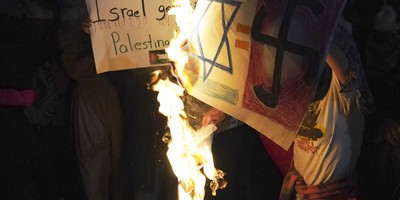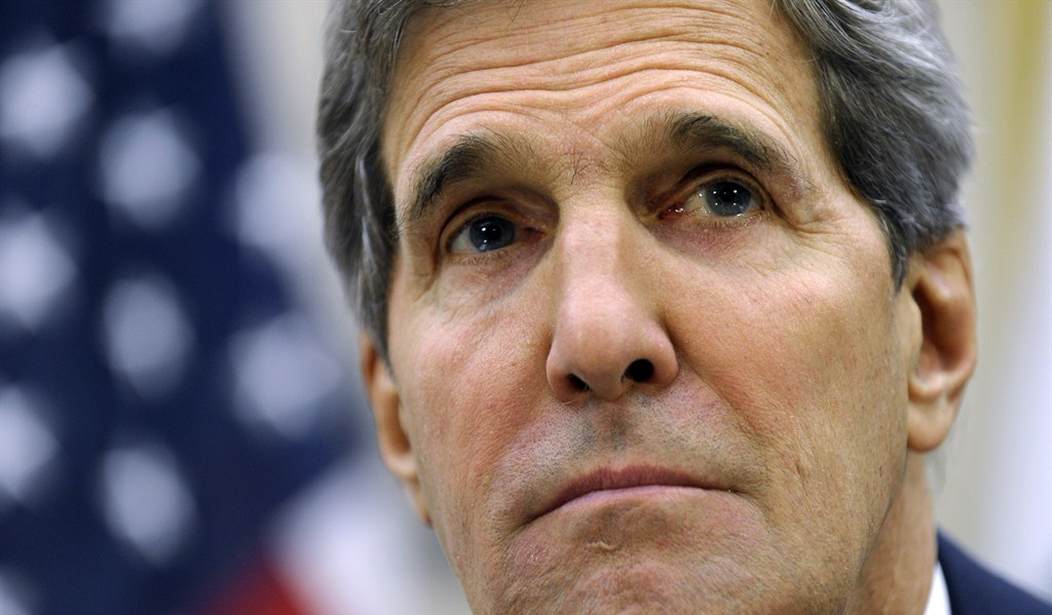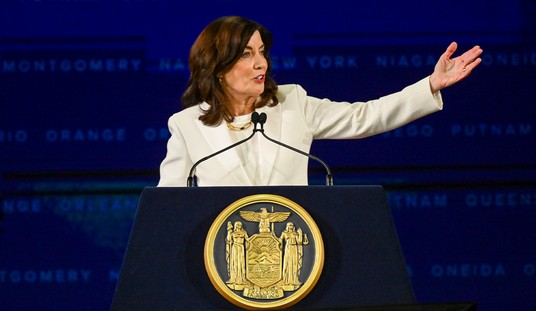Advertisement
The unequivocal Saudi move to back Egypt's secular military rulers, who toppled the Muslim government in a coup, left the Obama administration without a clear policy in the Middle East war that threatens our long alliance with the Saudi kingdom.
From the beginning of an Egyptian crisis fast turning into a religious civil war, the Obama administration has been caught flat footed and confused in its response, taking contradictory positions throughout the course of the conflict.
As the White House, seemingly incapable of deciding what its policy should be, struggled over whether to end its $1.5 billion-a- year military aid to its long term Egyptian ally, Saudi rulers swiftly acted to make that issue moot.
The Saudis flatly announced Monday that any retaliatory withdrawal of military aid by the U.S., or any other Western countries, would be covered by the Saudi government.
Calling its Egyptian neighbor "our second homeland," Saudis foreign minister, Prince Saud al-Faisal, said the Arab kingdom would do whatever it takes to make sure Egypt is not destabilized by foreign repercussions. "Concerning those who announced stopping their assistance to Egypt or threatening to stop them, the Arab and Islamic nation is rich with its
people and capabilities and will provide a helping hand to Egypt," Faisal said.
Before the fiery riots that led to the overthrow of the Muslim government headed by President Mohamed Morsi, the escalating crisis was seen as a battle between a Muslim theocracy and a more secular- leaning segment of Egypt's younger population.
Recommended
Advertisement
But since the crackdown, when Morsi was deposed and placed under house arrest, it's become clearer that the battle has really been between Morsi's repressive Muslim movement that had terrorist groups within their ranks and moderate Egyptians who want more economic and religious freedom.
That view was bluntly voiced Friday in a foreign policy address by aging Saudi King Abdullah who praised the Egyptian military's crackdown and accused the pro-Morsi protesters of "terrorism, extremism and sedition."
Several days later, the military arrested the spiritual leader of the Muslim Brotherhood movement that toppled the autocratic presidency of Hosni Mubarak. State television showed Mohammed Badie being driven away to prison Monday night.
That led to heightened "suspicions that [Mubarack's] former military-backed regime has returned to power," the Washington Post reported this week. That remains to be seen.
But as the emerging civil war in Egypt turned more and more chaotic by the day, the Saudis' unexpected embrace of Egypt's military leadership -- dividing the Muslim world -- has inserted a whole new dimension into the crisis.
On one side were the Saudis, joined by Kuwait and the United Arab Emirates. On the other, supporting the Muslim Brotherhood's government, were Qatar and Turkey, Iran, the despotic Assad regime in Syria, and Arab terror groups in nearly half a dozen Arab countries.
Veteran Middle East analysts saw the Saudi move as a dangerous high-wire act fraught with political and security risks. "This is an enormous gamble for the king," says Christopher Davidson, professor of Middle East history at Durham University in England. "Saudi Arabia is
Advertisement
putting itself in direct confrontation with the Muslim Brotherhood, which has broad regional sympathy across the region."
Potentially more troublesome was the Saudis' decision to cross swords with the Obama administration as the White House and State Department dithered and delayed over what to do next. Is the long alliance between the U.S. and Saudi Arabia now in danger because of the foreign policy incompetence of the West Wing and the new, untested Secretary of State John Kerry?
But the Saudi decision to side with Egypt's military, even at the risk of wounding relations with the U.S., betrayed how much they feared the Muslim Brotherhood, and their terrorist elements, running the largest and most powerful Arab country in the region.
"It's not about expansionism. The Saudis are doing these things out of fear rather than greed," Gamal Soltan, a political science professor at the American University of Cairo told the Washington Post.
Meantime, don't look for any coherent policy response from Secretary of State Kerry, whose bungled performance in his first big foreign policy test has been an international embarrassment.
Soon after Egypt's military arrested Morsi and took over his government, it took about three weeks before Obama's administration acknowledged that a coup had taken place. At one point, Kerry was telling the press in Pakistan that the military was merely "restoring democracy." When that remark sparked an uproar from the Muslim Brotherhood, Kerry sought to back away from his remark, calling for all sides "to get back to a new normal." Whatever that is.
Advertisement
The administration's Keystone Cops handling of the crisis, stumbling from one mixed message to another, has drawn condemnation and ridicule across the foreign policy community.
The administration's efforts to navigate its way through the violent military crackdown were "complicated by what many Egyptians see as mixed and confusing messages coming from Washington, exacerbating already high anti-American sentiment and threatening broader U.S. goals in the region," the Associated Press reported last week.
This region-wide crisis called for skillful statecraft and experienced presidential leadership, both of which have been AWOL in Washington ever since the bloodshed in Egypt began.






















Join the conversation as a VIP Member